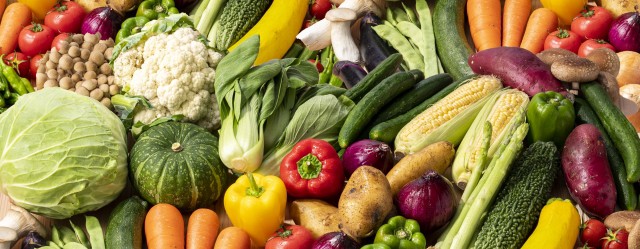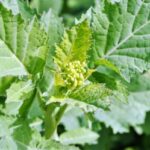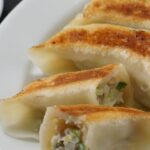
On September 6, 2022, the Japanese Agricultural Standards (JAS) for processed foods suitable for vegetarians or vegans was established. It was added to the JAS list on the website of the Ministry of Agriculture, Forestry and Fisheries on the same day, and we would like to summarize the outline and key points for labeling below.
Background of summary
Around May 2021, a study for JAS standardization (study body: Japan Vegetarian Society, an authorized nonprofit organization) began, followed by an invitation for opinions on the draft for JAS in June 2022, and led to the current enactment. “Technical standards for the certification” and “inspection methods” are shown in line with the establishment of the “standard” for processed foods suitable for vegetarians or vegans. The standard defines the requirements for four foods: “processed food suitable for vegetarians who eat eggs and dairy products (Lacto-Ovo Vegetarians)”, “processed food suitable for vegetarians who eat eggs (Ovo-Vegetarians)”, “processed food suitable for vegetarians who eat dairy products (Lacto-Vegetarians)” and “processed food suitable for vegan”.
Standard for each food type (Clause 4)
According to this standard, the definition of each food type can be summarized as follows.
| Processed food suitable for vegetarians who consume eggs and dairy products (Lacto-Ovo Vegetarians) | Processed food suitable for vegetarians who consume eggs (Ovo-Vegetarians) | Processed food suitable for vegetarians who consume dairy products (Lacto-Vegetarians) | Processed food suitable for vegan | |||
|---|---|---|---|---|---|---|
| 4a) |
– Animal-derived primary and secondary ingredients (Processing aids for secondary ingredients shall be limited to bone charcoal obtained from animals and crustaceans) shall not be used.
– However, regardless of primary and secondary ingredients, in the case where ingredients/additives at any stage are easy to determine from the name of the ingredients or additives that they are animal derived, such ingredients/additives shall not be used. |
|||||
| Ingredients of animal-derived that can be used* | Animal eggs or their processed foods |
〇 |
〇 |
× |
× |
|
| Animal milk or their processed foods |
〇 |
× |
〇 |
× |
||
| Honey or bee products (beeswax, propolis, etc.) |
〇 |
〇 |
〇 |
× |
||
| Wool fat containing lanolin |
〇 |
〇 |
〇 |
× |
||
|
4b) |
No animal tests of the above foods must be conducted by manufacturers, etc. | |||||
* “〇” includes its ingredients or their derivatives.
About Ingredient receipt, storage and manufacturing (Clause 5)
The standards for production process management can be summarized as follows.
| Processed food suitable for vegetarians who consume eggs and dairy products (Lacto-Ovo Vegetarians) | Processed food suitable for vegetarians who consume eggs (Ovo-Vegetarians) | Processed food suitable for vegetarians who consume dairy products (Lacto-Vegetarians) | Processed food suitable for vegan | |
|---|---|---|---|---|
| Receipt and storage of primary ingredients | At the time of receipt of procured primary ingredients, the grounds for satisfying 4a) of each food shall be obtained, and the primary ingredients shall be managed separately so as not to be mixed with ingredients/additives which do not satisfy 4a). | |||
| Manufacturing | – Appropriate precautions must be taken to prevent the unintentional contamination of unsuitable ingredients/additives in each food product. – No oil for frying ingredients unsuitable for each food or processed food made from such ingredients shall be used. – In the case where the production line for processed foods using ingredients/additives suitable for each food is shared with the production for processed foods using ingredients/additives unsuitable for each food, cleaning must be fully carried out before the start of the production of processed foods using ingredients/additives suitable for each food. This shall also apply to any surface with which the relevant machinery, equipment, tools and ingredients come into contact. |
|||
About labeling (Clause 6)
According to the definitions in the Standard, the labeling standard can be summarized as follows.
| Terms* |
“Vegetarians who consume eggs and dairy products (Lacto-Ovo Vegetarians)” |
“Vegetarians who consume eggs (Ovo-Vegetarians)” |
“Vegetarians who consume dairy products (Lacto-Vegetarians)” |
“Vegan” |
|---|---|---|---|---|
| “Vegetarian” | ||||
| Labeling items | – The labeling of the above terms must meet the applicable requirements of Clause 4 (Standard for processed foods suitable for vegetarian or vegan consumption) and Clause 5 (Standard for production process control of processed foods suitable for vegetarian or vegan consumption). – Even in the case of possible unintentional contamination of unsuitable ingredients/additives in each food product, the above terms may be indicated if appropriate precautions have been taken. – The above terms may be used even when an allergen alert based on the possibility of unintentional contamination of ingredients/additives unsuitable for each food product is labeled. |
|||
| Labeling methods | In order to distinguish processed foods similar to those of animal-derived, the above terms must be indicated in the same field of view as the product name of the processed foods. | |||
| Manner of Indication, etc. | – (N/A) | |||
| Prohibited labeling items | – (N/A) | |||
* Terms with similar meanings to these are included as well.
Keeping an eye on future international trends
In March 2021, International Organization for Standardization for foods suitable for vegetarians or vegans, ISO 23662:Definitions and technical criteria for foods and food ingredients suitable for vegetarians or vegans and for labelling and claims) was published and it serves as a reference for the establishment of the JAS Standard this time. On the other hand, regarding terms such as “plant-based” and “plant-based food”. the result of the public comment states that “there is no definition in Japan* or internationally, and we will monitor and respond to future international trends”. When considering the labeling of terms related to foods suitable for vegetarians or vegans as well as related terms such as plant-based, it would be a good idea to start by checking the JAS standard for this issue.
*For reference information at this time, the “Q&A on Labeling of Plant-Based Foods, etc. (Consumer Affairs Agency)” states, “‘Plant-based food’ as used in this Q&A refers to products made from mainly plant-derived ingredients (not including livestock or marine products) that resemble livestock products such as meat and fish or marine products such as fish. Even if animal-derived additives are contained, if the main ingredient is plant-derived, it shall be included in ‘plant-based food'”.
References
- Processed Food Suitable for Vegetarians or Vegans Japanese Agricultural Standards (JAS) (the Ministry of Agriculture, Forestry and Fisheries)
- Processed Foods Suitable for Vegetarians or Vegans, An outline of the opinions received on the draft for the establishment of JAS and their views on the opinions
Share/Like/Follow:
Newsletter Signup
We issue monthly e-newsletters, which provide you with the latest updates on food labeling/regulations in Japan.
If you want to make sure to not miss any issue, please click below.
Related Service
Research Services on Ingredients & Food Labeling -For the Japanese Market-
We verify the conformity of ingredients and additives with the standards for use in Japan based on specifications such as formulation lists. We also verify the conformity of the proposed labeling of ingredient names, nutrients, etc. with the labeling standards based on specifications such as formulation lists.

Label bank Co., Ltd. CEO (Founder)
Born in Japan. Working on solving various issues related to food labeling operations. Also regularly gives lectures for various organizations in Japan.
Co-authored ‘A Practical Guidebook to Food Labeling for Export – from scratch‘ and ‘2nd Revised Edition: Guidebook Food Labeling Law and related business practical points – from scratch‘ (DAI-ICHI HOKI CO., LTD).





